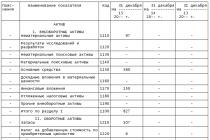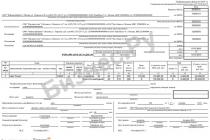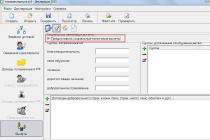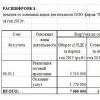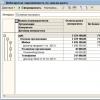In the process of activity of each company, there are always settlements with suppliers, credit institutions, the Federal Tax Service Inspectorate and its own staff.
The resulting debt to counterparties is called accounts payable and allows for the time specified in the concluded agreements to delay the fulfillment of the obligations assumed by the enterprise, balancing the intensity of financial flows.
Sometimes, due to various circumstances, debts to creditors are not repaid. Such debts remaining unpaid after a certain time must be written off to other company income, however, this procedure is very responsible and, as a rule, attracts the attention of tax authorities. That is why the accountant's special attention should be paid to compliance with the requirements of the legislation of all stages of the operation to write off accounts payable (KZ).
Overdue debts
In accounting, KZ is fixed on the accounts and in the financial statements until the fact of its repayment. However, the debt that arose to the partner company and for some reason was not claimed by it within the legally established period (possibly during the liquidation of the creditor) is considered accounts payable with an expired limitation period. It is written off, necessarily reflecting in the composition of other income.
An important circumstance here is the correct determination of the time when this can and should be done.
The law defines three year period after which the debt can be written off. The beginning of its calculation in different circumstances is different. For example, if at the conclusion of the contract the contractor is obliged to pay for goods / services within a certain time period, then the limitation period begins from the moment it ends.
If the agreement does not specify the date of payment for the services provided, then the limitation period begins from the day the creditor put forward a demand for payment of obligations. True, if he set the time for their execution in the requirement, they start counting from the moment when it ends.
The claim period may be interrupted if the debtor admits the existence of a debt, he signs a deferment, an act of reconciliation of settlements, pays part of it or accrued interest. After such actions, the initial countdown of the limitation period ends, and from the moment of interruption it starts again.
The total claim period is limited 10 year period, i.e., it cannot continue beyond this time.
Conditions for writing off debts of previous years

Overdue debt is written off for each agreement separately. To do this, you need documents confirming its existence.
- act of inventory of obligations ();
- an internal document that correctly substantiates the reasons for writing off the debt.
Despite the fact that the company's obligations are inventoried annually at the end of the financial period, the head of the company has the right to determine additional reasons for its implementation. It can just be the presence of overdue debts. Therefore, the first operation in the process of write-off of short-term contracts is an audit, possibly even only for individual counterparties.
Based on the results of the inventory, an act of settlements with creditors is drawn up, where the necessary information is reflected for each of them:
- full name of the company;
- debt accounting accounts;
- sum;
- dates of reconciliation, or a note about its absence or existing disagreements;
- settlements with creditors, etc.
A document is drawn up in 2 copies and certified by the signatures of the members of the inventory commission.
Accounting information
In order to write off an overdue short circuit, in addition to the inventory act, it is also necessary to document the fact of its formation. More often, such a justification is an accounting statement drawn up on the basis of accounting registers and primary documents confirming the existing debt (for example, contracts, reconciliation acts, etc.). It must necessarily indicate the terms and reasons for the formation of debt, its amount, as well as the details of the counterparty.
The certificate is signed by the chief accountant of the company.
Order

Based on the listed documents, the director of the company gives a written order, which is the basis for writing off the overdue short circuit. This order is drawn up on the letterhead of the company, signed by the head and sealed (if applicable in the organization).
The text of the order should contain a link to internal company documents confirming the existence of a debt and justifying the legality of writing off a short circuit. Only after receiving the order, the accountant has the right to write off the debt in accounting - tax and accounting.
Features of writing off debt in accounting

The amount of the debt is written off from the account on which it was taken into account. Usually these are billing accounts. The operation is executed by posting D / t 60, 62, 66, 71, 76 - K / t 91-1.
It is important to write off in the period in which the claim period expired. This will remove the questions of the tax authorities, since they believe that the overdue KZ should be included in the income of the enterprise precisely in the period when the statute of limitations has expired and this must be done regardless of whether the necessary supporting documents have been drawn up.
Thus, even in the absence of an inventory list and an order for write-off, it is advisable to include the amount of KZ in taxable income on the last day of the reporting period when the claim period ended.
Upon liquidation of a creditor

Sometimes the occurrence of an overdue debt in a company provokes the loss of the status of an operating organization by the creditor enterprise.
We will not focus on the reasons for this phenomenon, we will only note that in this case the company must write off the short-term credit on the date indicated in the Unified State Register of Legal Entities and fixes the fact of liquidation of the creditor company.
The same applies if the creditor is excluded from the Unified State Register of Legal Entities as an inactive legal entity: the date of debt cancellation will correspond to the date of entry in the state register.
Debt Forgiveness

In exceptional cases, the lender may forgive the debt. This happens with the withdrawal of assets, which is practiced today, as an effective way to save a business.
The algorithm of actions here is:
- counterparties draw up, date and sign a debt forgiveness agreement;
- or the creditor sends a document confirming the fact of forgiveness of the debt.
In the first case, the company will date the write-off of accounts payable in accordance with the same date specified in the debt forgiveness agreement. In the second scenario, the write-off date will be the date of receipt of the document evidencing the forgiveness of the short circuit.
Procedure for enterprises on the simplified tax system
In the tax accounting of the "simplifiers", the written-off short circuit is also included in the income of the same period when the claim period for collecting the debt has expired.
At the same time, the write-off of debts on taxes, contributions and fines in income under the simplified tax system (as well as under other taxation systems) does not need to be included. In addition, under the simplified special regime, income and advances on non-delivered goods/services are not included, since they were previously reflected in income.
Example:
LLC "Yashma" under the simplified tax system "Income minus expenses" received from the shopping mall "Rhythm" goods in the amount of 59000 rub. (including VAT - 9000 rubles) in March 2012. According to the terms of the contract, they must be paid before March 20, 2012, but LLC did not make payment during this period. For 3 years, TK "Ritm" has not made any attempts to recover the amount of short-term credit from the counterparty. On March 20, 2015, the statute of limitations expired.
In this regard, the director of Yashma LLC decided to write off the debt. To do this, on March 20, 2015, an inventory of obligations was carried out, an inventory act and an accounting record were drawn up. certificate issued an appropriate order.
The following entries were made in the accounting of Yashma LLC:
- March 2012
- D / t 41 K / t 60 - for 59,000 rubles. goods arrived;
- March 2015
- D / 60 K / t 91-1 - written off the short-circuit order for an unpaid delivery in the amount of 59,000 rubles.
In tax accounting, written off KZ in the amount of 59,000 rubles. the accountant included in income as of the date of expiration of the limitation period - March 20, 2015, and on the same day made a note in KUDiR.
In the event of an accounts payable associated with the acquisition of goods and materials, including the amount of input VAT, the full amount of the debt, including tax, is charged to the company's income. At the same time, the simplifier cannot be written off as expenses the cost of unpaid deliveries, even if it is sold. This is the requirement of legislators: with the simplified tax system, the costs of purchasing goods are taken into account if they were paid.
An exception is the liquidation of a creditor. In this option, the obligations are terminated not through the fault of the debtor, but due to the liquidation of the partner, and the goods are considered paid in full. These amounts can be completely legally attributed to expenses under the simplified tax system. Goods are also considered to be paid for, the payment debts of which have been forgiven.
Consider an example:
The enterprise received an advance payment of 100,000 rubles on the simplified tax system in June 2014. for execution work specified in the agreement. The obligations were not fulfilled, the limitation period expired in June 2017.
Having documented the write-off of the overdue KZ, the accountant reflects the operation to the records And:
- in June 2014 - D / t 51 K / t 62 - 100,000 rubles. (an advance payment was received, confirmed by a bank statement);
- in June 2017 - D / t 62 K / t 91-1 - 100,000 rubles. (the debt was written off on the basis of the executed documents and the order of the director.
Since simplistic firms take into account the income received on the day the money is credited to the account or cash receipts, the amount of the advance was recognized as income as early as June 2014. Therefore, when writing off the KZ in June 2017, it cannot be re-attributed to income. And since the company also did not incur expenses, this amount will not be recognized as expenses.



